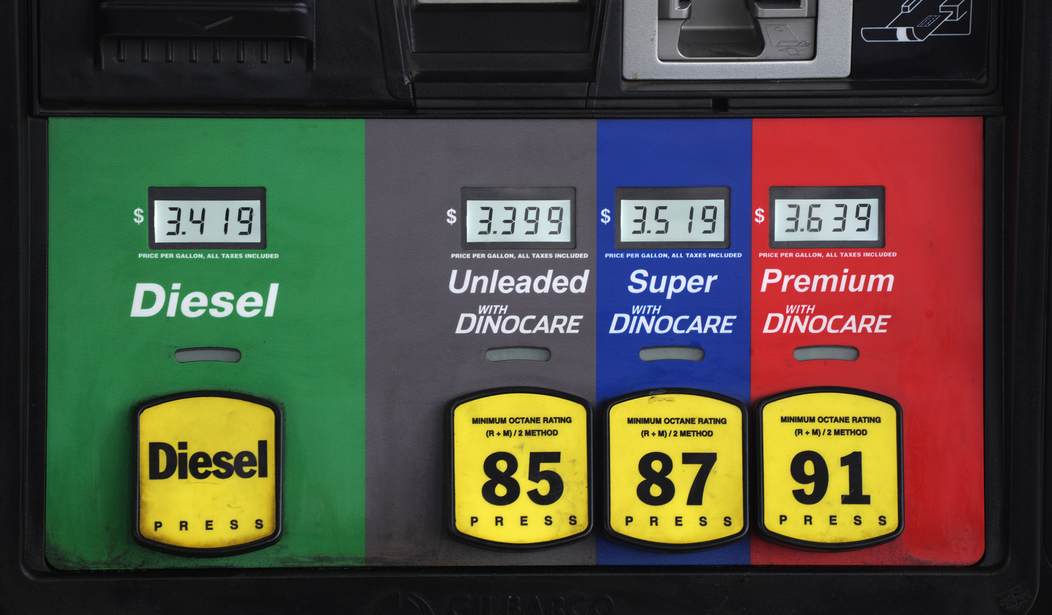CBS Pittsburgh calls this a “major move,” but it’s as major as spitting into the ocean. White House sources told media outlets that Joe Biden will announce a five-nation effort to release millions of barrels of oil held by governments in an effort to curtail the rapid rise in gas prices. Here in the US, the Biden administration will release 50 million barrels, roughly eight percent of our Strategic Petroleum Reserve.
“Strategic” in this case is filled with irony:
In total the U.S. will release 50 million barrels from the SPR. Of the total 32 million barrels will be an exchange over the next several months, while 18 million barrels will be an acceleration of a previously authorized sale.
“The President stands ready to take additional action, if needed, and is prepared to use his full authorities working in coordination with the rest of the world to maintain adequate supply as we exit the pandemic,” the White House said in a statement.
Tuesday’s announcement follows the administration saying for months that it was looking into the tools at its disposable as West Texas Intermediate crude futures surged to a seven-year high above $85.
Prices at the pump have followed the ascent, and are currently hovering around their highest level in seven years. The national average for a gallon of gas stood at $3.409 on Monday, according to AAA, up from $2.11 one year ago. …
The coordinated release between the U.S., India, China, Japan, Republic of Korea and the United Kingdom is the first such move of its kind.
Fifty million barrels of oil sounds like a lot, right? It’s not — at all. In 2020, when consumption hit its lowest level in a quarter-century, the US consumed 18 million barrels of oil a day. Don’t take my word for it; the US Energy Information Administration has this data easily available. And that was after the largest single-year decline in consumption in US history to boot. Demand is higher now, while futures for production are signaling lower production.
Essentially, Biden has supplied enough oil to bootstrap consumers for the weekend. Gas up!
The announcement sounds like a “major” change because previous presidents have largely resisted this impulse to resolve economic pressures, both for practical and political reasons. Practically speaking, a release will have no real direct impact on consumer prices. Furthermore, the US and the other four countries will have to buy oil at some point to replace the SPR and the other countries’ equivalents. After all, the SPR is primarily designed for military purposes as a means to keep operations under way in case of oil-supply shocks; hence the term “Strategic.” When these countries begin to replace the oil they’ve released, it will force prices back up unless we expand production in the meantime — a point to which we’ll return in a moment.
Politically speaking, it’s a disaster in two ways. For one thing, it smacks of desperation and impotence, and in this case it’s not the only such sign. Biden had recently begged OPEC to boost production, but they’re not inclined to lower prices now after the last few years of American production keeping prices low. Second, that desperation is likely to goose demand as people start using gasoline now in anticipation of higher prices later. That effect won’t be long-lived, but expect prices to climb at the pump rather than go down after this.
The rational and effective way to deal with bigger demand is to increase production. Furthermore, ramping up production would be strategic as well. Lowering global oil prices by getting back to being a net-exporter will cut into the funds available to Iran and Russia, while the higher prices from American cuts in production puts cash into the pockets of Vladimir Putin and the IRGC. Larger domestic production would also allow us to (a) replace the SPR drain, but more importantly (b) never need to drain the SPR in the first place except in the case of real emergencies, not political expediencies.
Instead of thinking strategically, Biden is kowtowing to environmentalists by cutting off oil-extraction leases on federal lands and canceling pipelines to make oil transport more efficient. These policies sent a strong signal to the futures markets — which price the oil we use today — that American production will get seriously restrained. That’s the same message Biden himself keeps sending about oil production as well when he vows to put an end to the use of fossil fuels. What did he expect to happen to oil and gas prices? And then inflation, given that fuel price increases are force multipliers through the distribution chain for inflation in the Consumer Price Index? No one in this White House apparently either took an economics or a history course.
Unfortunately, this reactive and idiotic policy is what we get for electing a fossilized fool as president. Don’t expect it to improve until we extract that fossil from the White House in 2024.








Join the conversation as a VIP Member